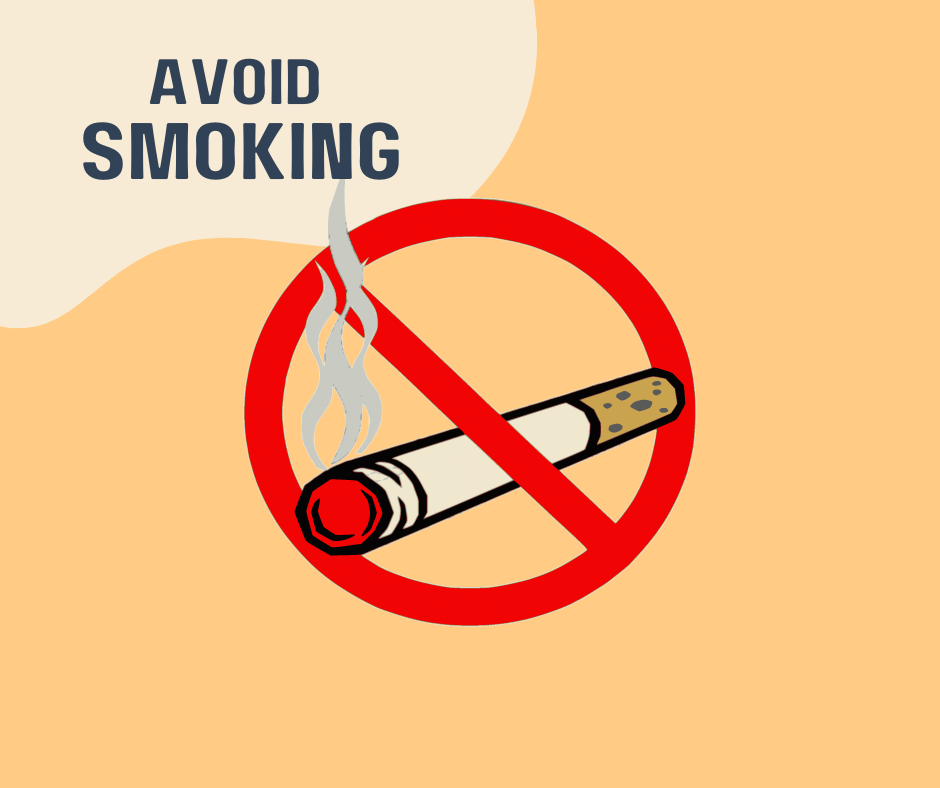Are you a voice actor looking for advice on how to take care of your voice? If so, you’re in the right place! Taking care of your vocal cords is essential for any singer or actor. Not only does it ensure that you can perform at your best, but it also ensures that your vocal cords remain healthy and free from damage. In this article, we’ll discuss everything you need to know about vocal care for voice actors. We’ll look at the anatomy of the voice, the importance of vocal care, and the most common vocal care problems. Plus, we’ll cover tips on how to keep your voice healthy and ways to improve your singing or speaking voice. So read on to find out more about maintaining healthy vocal cords.
The Anatomy Of The Voice
The anatomy of the voice is a complex and important topic for any singer or voice actor. Every person’s body is different, and understanding these differences will help you take better care of your voice.
Your vocal cords are two folds of elastic tissue that vibrate to produce sound when air passes through them. The larynx, also known as the “voice box” supports the vocal cords and helps control the pitch of your voice. Other structures in your throat such as your tongue, teeth and lips are important for controlling the sound of your voice as well.
Proper hydration is key to keeping your vocal cords healthy. Water should be consumed throughout the day in plenty to keep your vocal cords lubricated and functioning properly. Avoid dehydration, which can cause hoarseness or soreness in your throat as well as a decrease in volume and range when singing or talking.
You should also be mindful of how you are using your voice on a daily basis. Many people don’t realize that speaking too loudly or for extended periods of time can harm their voices over time. When possible, try to speak at a lower volume and take breaks from talking whenever possible to give your vocal cords a rest. If you find yourself getting hoarse regularly, visit an ENT (ear nose and throat) doctor who specializes in vocal health to make sure nothing serious is going on with your vocal cords.
If you plan on doing any singing or performing, it’s important to warm up beforehand to help protect your voice from strain or injury. Make sure you do some basic exercises like tongue trills, lip rolls and breathy hums before you start singing. This will help loosen up your muscles so they can respond more easily when producing different vowel sounds or higher notes during performance. A good teacher can help guide you through proper warm-up exercises specific to the music style that you are working with if needed!
It’s also important to monitor how much stress you put on yourself before performance as this can have an impact on the quality of your singing voice as well! Stress hormones like cortisol can tighten up vocal muscles and make it harder for them to function properly so try some simple relaxation techniques like massaging your face before going onstage if allergies are flaring up or you’re feeling anxious about performing! Taking care of yourself will ultimately benefit not only how well but also how long you can maintain a healthy singing career!
The Importance Of Vocal Care
Vocal care is essential for any aspiring voice actor. Taking the time to understand and maintain your vocal health is key for achieving a successful singing career.
Your voice is an instrument that requires regular maintenance, just like any other instrument. The anatomy of the voice consists of your vocal folds (also known as vocal cords) and larynx, located in your throat and lungs. When these parts are healthy, they vibrate together to produce sound. Your speech and singing rely on this vibration process to create sound waves that reach the audience or recording device.
It’s important to keep your voice healthy in order to prevent hoarseness, loss of range, or even damage to your vocal cords that could occur if you abuse your voice with too much strain or overuse it. Drinking plenty of water throughout the day will help hydrate your vocal cords while also helping flush out mucus. In addition, taking regular breaks from speaking or singing will give your body time to rest and allow you to maintain a healthy vocal range.
When caring for your voice, it’s best not to take it for granted and instead be mindful of how you use it in everyday life. Avoid speaking too loudly or straining when using certain vowels sounds; try massaging the muscles around your mouth and jaw to release tension; and make sure allergies aren’t flaring up since this can cause additional strain on the throat and lungs.
If you experience any warning signs such as hoarseness after long periods of talking or singing, consider making an appointment with a voice specialist who can help diagnose any issues with your vocal health and provide tips on how to improve the quality of your speech or singing performance such as warm-up exercises before performance—such as sticking out your tongue—and advice on how not to take it easy when performing but rather know how important using proper support for producing sound is for keeping from straining down on the throat muscles too much.
By following some simple tips like staying hydrated, taking breaks when needed and monitoring how you use your voice on a daily basis, you’ll be able to keep from damaging the delicate tissues in the larynx area so that you can continue doing what you love without worrying about hurting yourself vocally!
The Most Common Vocal Care Problems
Vocal care is an essential part of maintaining a healthy voice for voice actors. It’s important to know what the most common vocal care problems are and how to take care of your voice to ensure you can continue to perform optimally.
One of the most common vocal care problems is hoarseness, which is characterized by a weak, raspy, or strained sounding voice. It can be caused by overusing the vocal cords, dehydration, allergies, or acid reflux. To prevent it, make sure you stay hydrated and rest your voice when needed. Maintain a healthy fluid intake throughout the day and avoid talking too loudly or for long periods of time. You should also warm up your voice with some simple exercises before singing or talking for extended periods.
Other common vocal care issues include swollen vocal folds or nodes, laryngitis, nodules, polyps and cysts. These conditions can occur due to overuse of the voice or improper use of the vocal muscles such as straining when speaking or singing. Proper technique is key in avoiding these issues so it’s important that you find a singing teacher or vocal pathologist who can help improve your voice quality and show you ways to keep your voice healthy and strong.
It’s also important that you don’t abuse your voice by pushing it beyond its limits. Make sure you take breaks throughout rehearsal and performance sessions and don’t sing until you’re hoarse. Additionally, monitor your lifestyle habits like smoking cigarettes or drinking alcohol as they can harm your vocal health as well. Eating healthy and maintain a healthy hydration level throughout the day will help keep your body hydrated which in turn will help keep your voice healthy.
By knowing the most common vocal health problems and taking steps to protect your voice from further damage with proper warm ups and healthy habits, you can ensure that you maintain a strong singing career for years to come!
Tips for Maintaining Vocal Health
Maintaining good vocal health is essential if you want to be able to use your voice confidently and effectively. Whether you’re a professional singer, an actor, or just someone who enjoys speaking up in public, there are some simple tips you can follow for keeping your voice in top condition.
Stay Hydrated

The first and most important step in vocal care is staying hydrated. Water is the key to keeping your vocal cords moist and allowing them to vibrate freely. Dehydration will leave your throat feeling dry and scratchy, which can reduce vocal quality and even lead to permanent damage. Make sure you’re drinking plenty of water throughout the day – aim for 8-10 glasses per day – and avoid drinks that are high in caffeine or alcohol as these can dry out your throat even further.
It’s also important to warm up before any activity that involves using your voice, such as singing or delivering a speech. A few minutes of gentle vocal exercises like humming or lip trills can help prepare your voice for the task ahead. This will reduce strain on your vocal cords which can prevent injury and ensure that they remain supple and responsive to changes in pitch or volume.
Resting your voice after extended periods of talking or singing is equally important, so take regular breaks when engaging in activities that involve heavy use of the voice. If possible try not to talk for long stretches at one time, especially when shouting or screaming as this puts extra strain on the vocal cords. Avoid smoky environments too as smoke particles can irritate the throat and make it difficult to speak without discomfort.
Finally, if you find yourself suffering from a sore throat or hoarseness then seek medical advice as soon as possible – don’t wait until it gets worse! With proper care and attention, you should be able to keep your vocal health in check with relative ease!
Limit or Avoid Alcohol and Smoking

Alcohol dries out the throat, which can be very damaging to the vocal cords. It’s best to keep hydrated with water, herbal teas and other non-alcoholic beverages before and after singing or speaking. Drinking plenty of fluids helps lubricate your throat and keeps it from becoming too dry.
Smoking has an even worse effect on the voice than alcohol. The smoke from cigarettes can coat the vocal cords, leading to hoarseness, cracking, loss of volume and range, as well as a dry and sore throat. Smoking also increases mucus production in the throat, further impairing vocal performance and creating an environment that makes infections more likely.
Taking care of your voice should be part of your daily routine if you are a singer or speaker. Avoiding alcohol and smoking are important steps toward maintaining good vocal health. Try to keep away from any environment where these activities are present – it will make a huge difference in how your voice sounds!

Don’t Forget to Warm up Your Voice
Warming up is crucial for maintaining the health of your voice, and it’s not just something to do before a performance. If you want to have a strong, clear voice that can carry you through long speaking engagements or singing sessions without strain or fatigue, then you need to make warming up a regular part of your routine.
Think of it like stretching before exercise. Just as you wouldn’t jump straight into a workout without warming up your muscles, you shouldn’t expect your vocal cords to perform at their best without a proper warm-up. By taking the time to warm up your voice, you’ll help prevent injuries, reduce strain and fatigue, and ensure that you’re ready to deliver your best performance every time.
Here are a few examples of simple but effective warm-up exercises that you can try:
- Lip Trills: This exercise involves blowing air through your lips, causing them to vibrate. This helps to loosen up the lips, tongue, and jaw. To do this, simply make a buzzing sound by blowing air through your lips while keeping them closed. Move your pitch up and down, and try to create a smooth, steady sound.
- Tongue Twisters: Tongue twisters are a classic warm-up exercise that can help to improve your enunciation and diction. They also help to warm up the muscles in your tongue, lips, and jaw. Start with simple tongue twisters and gradually increase the difficulty. For example, try saying “She sells seashells by the seashore” or “Red lorry, yellow lorry” repeatedly.
- Humming: Humming is a great way to warm up your voice and get your vocal cords vibrating. Start by humming a simple tune, like “Happy Birthday.” Gradually move your pitch up and down, and try to keep your lips and teeth slightly apart while humming.
- Sirens: Sirens are another fun and effective warm-up exercise. To do this, start with a low pitch and gradually glide up to a high pitch and then back down again. You can also do this exercise in reverse, starting with a high pitch and gliding down to a low pitch.
So, whether you’re a professional singer, a voice actor, or just someone who wants to keep their voice healthy and strong, make sure you’re taking the time to warm up properly. It might seem like a small thing, but it can make a big difference in your vocal health and performance.
Practice Good Posture and Breath Support Techniques
Good posture helps to open the chest and throat, which allows oxygen to circulate more freely throughout the body. This encourages proper breathing, which provides the air needed to resonate sound when singing or speaking. Good posture also helps to keep the head in an upright position, allowing sounds to be projected more clearly. A great way to practice good posture is by keeping your spine straight and shoulders relaxed while standing or sitting.
Breath support is another important factor of vocal health that can’t be overlooked. Proper breath support helps regulate your air flow so you don’t run out of breath when singing or speaking for an extended period of time. To practice breath support, stand tall with your feet hip-width apart and take a deep inhale through your nose, filling up your lungs from the bottom up as if you were inflating a balloon. As you exhale through your mouth, use your diaphragm to push all the air out until it’s gone and repeat this cycle several times until you feel comfortable with it.
Finally, warm-up exercises can help improve vocal health by getting rid of tension in the throat muscles before singing or speaking for an extended period of time. Examples of warm-up exercises include humming scales, lip trills and tongue twisters which can help get blood flowing in the vocal cords while loosening up any tightness in the neck area. These exercises should always be done gently and without strain; if they’re done properly they can greatly improve a singer’s range or a speaker’s clarity and control over their voice.
Keeping these tips in mind will help ensure that everyone has strong and healthy vocals for many years to come!
Avoid Prolonged Talking or Singing
Prolonged talking or singing can be hard on your vocal cords, as it places a lot of strain and tension on them. To maintain vocal health, it’s important to avoid extended periods of talking and singing. Taking regular breaks between sessions can help you preserve your voice and prevent damage over time.
When engaging in prolonged speaking or singing, be sure to use proper technique to ensure that your vocal cords are not strained. Relaxing your throat muscles and using support from the diaphragm when inhaling can help reduce the strain on your voice. Additionally, paying attention to the volume while speaking or singing will help keep your vocal cords from becoming overly taxed.
Hydration is also very important for vocal health when engaging in extended periods of speaking or singing. Drinking plenty of water before and during shows can help keep your throat lubricated and reduce potential harm resulting from long-term use of the vocal cords.
Finally, always warm up before any activity that involves talking or singing for an extended period of time. Doing exercises like lip trills, humming and tongue trills will help relax the muscles used for speech and get them ready for use. Warming up also helps reduce tension on the vocal cords so they are better prepared for prolonged use.
Visit Your Doctor for Any Existing Ailments or Health Conditions
Maybe you’ve been dealing with allergies, acid reflux, or even just a persistent cough. These kinds of things might not seem like a big deal, but they can actually have a big impact on your vocal health. For example, allergies can cause congestion and throat irritation, while acid reflux can lead to inflammation in the throat and vocal cords.
By seeing your doctor and addressing any existing health issues, you can help prevent further damage to your voice and ensure that you’re taking the best possible care of yourself. Your doctor might recommend lifestyle changes, medication, or other treatments that can help you manage your symptoms and keep your voice healthy.
Plus, by taking care of your overall health, you’ll likely find that you feel better in general, with more energy and less stress. And who wouldn’t want that, right?
So don’t be afraid to make that appointment with your doctor, even if you think your symptoms are minor. Taking care of your health is one of the best things you can do for your voice and your overall well-being.
Conclusion
As you wrap up this article on maintaining vocal health, remember that your voice is a valuable asset. Whether you’re a voiceover artist, professional singer, or just someone who enjoys talking, taking care of your voice should be a priority. By implementing the tips outlined here, you can ensure that your voice remains strong and healthy for years to come.
Think of your vocal cords as a finely-tuned instrument. With proper care and attention, they can produce beautiful music, clear speech, and convey your emotions in a powerful way. But just like any instrument, neglect and misuse can lead to damage and even permanent harm.
So take the time to warm up your voice, stay hydrated, avoid smoking and excessive alcohol consumption, and seek medical attention if necessary. Remember that prevention is key, and a little effort now can save you from vocal problems down the road.
Lastly, don’t be afraid to experiment with your voice and try new techniques. Whether it’s practicing different singing styles or experimenting with vocal exercises, exploring the full range of your voice can be a fun and rewarding experience.
So, keep these tips in mind and continue to care for your vocal cords. Your voice is an essential part of who you are, and with the right care, it can continue to be a powerful and expressive tool for years to come.

Leave a Reply